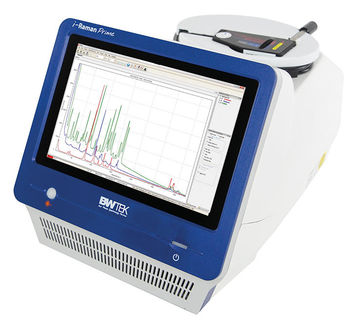To use all functions of this page, please activate cookies in your browser.
my.chemeurope.com
With an accout for my.chemeurope.com you can always see everything at a glance – and you can configure your own website and individual newsletter.
- My watch list
- My saved searches
- My saved topics
- My newsletter
Ilya Prigogine
Ilya Prigogine (Russian: Илья́ Рома́нович Приго́жин) (January 25, 1917 – May 28, 2003) was a Belgian physicist and Nobel Laureate chemist noted for his work on dissipative structures, complex systems, and irreversibility. Product highlight
BiographyPrigogine was born in Moscow a few months before the Russian Revolution of 1917. His father, Roman Prigogine, was a chemical engineer at the Moscow Institute of Technology. Because the family was critical toward the new Soviet system, they left Russia in 1921. They first went to Germany and in 1929 to Belgium, where Prigogine received Belgian nationality in 1949. Prigogine studied chemistry at the Free University of Brussels, now split into the Université Libre de Bruxelles and the Vrije Universiteit Brussel, where in 1950 he became professor. In 1959, he was appointed director of the International Solvay Institute in Brussels, Belgium. In that year he also started teaching at the University of Texas at Austin in the United States, where he later was appointed Regental Professor and Ashbel Smith Professor of Physics and Chemical Engineering. In 1967 he co-founded there what is now called The Center for Complex Quantum Systems. In that year he also returned to Belgium where he became director of the Center for Statistical Mechanics and Thermodynamics. He was a member of numerous scientific organizations, and received numerous awards, prizes and 53 honorary degrees. In 1955 Ilya Prigogine was awarded the Francqui Prize for Exact Sciences. For this study in irreversible thermodynamics he received the Rumford Medal in 1976 and in 1977 the Nobel Prize in Chemistry. In 1989 he was awarded the title of Viscount by the King of Belgium. Until his death he was president of the International Academy of Science and was in 1997 one of the founders of the International Commission on Distance Education (CODE), a worldwide accreditation agency. WorkPrigogine is known best due to his definition of dissipative structures and their role in thermodynamic systems far from equilibrium, a discovery that won him the Nobel Prize in Chemistry in 1977. Dissipative structures theoryDissipative structure theory led to pioneering research in self-organizing systems, as well as philosophic inquiries into the formation of complexity on biological entities and the quest for a creative and irreversible role of time in the natural sciences. His work is seen by many as a bridge between natural sciences and social sciences. With University of Texas at Austin professor Robert Herman, he also developed the basis of the two fluid model, a traffic model for urban networks, using Bose-Einstein Condensation theory in traffic engineering. Other worksIn his later years, his work concentrated on the mathematical role of determinism in nonlinear systems on both the classical and quantum level. He proposed the use of a rigged Hilbert space in quantum mechanics as one possible method of achieving irreversibility in quantum systems. He also co-authored several books with Isabelle Stengers, including The End of Certainty and the classical book La Nouvelle Alliance. BooksPrigogine was the author of several scientific articles and books. A selection:
Categories: Belgian chemists | Nobel laureates in Chemistry | Thermodynamicists |
||||||||||||||||||||||||||||||||
| This article is licensed under the GNU Free Documentation License. It uses material from the Wikipedia article "Ilya_Prigogine". A list of authors is available in Wikipedia. | ||||||||||||||||||||||||||||||||







